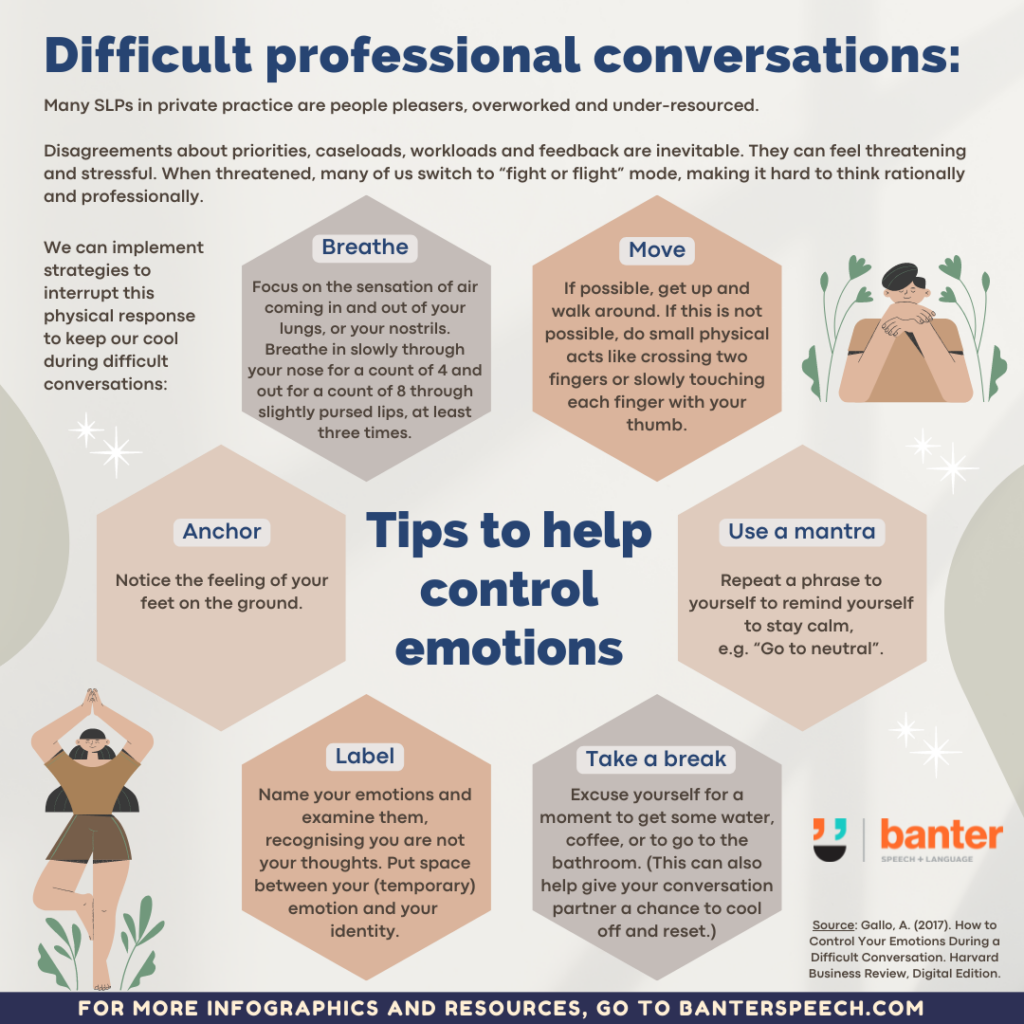Many Speech Language Pathologists in private practice are people pleasers, overworked and under-resourced.
Disagreements about priorities, caseloads, workloads and feedback are inevitable. They can feel threatening and stressful.
When threatened, many of us switch to “fight or flight” mode, making it hard to think rationally and professionally.
We can implement strategies to interrupt this physical response to keep our cool during difficult conversations:
- Breathe: Focus on the sensation of air coming in and out of your lungs, or your nostrils. Breath in slowly through your nose for a count of 4 and out for a count of 8 through slightly pursed lips, at least three times.
- Anchor: Notice the feeling of your feet on the ground.
- Move: If possible, get up and walk around. If this is not possible, do small physical acts like crossing two fingers or slowly touching each finger with your thumb.
- Use a mantra: Repeat a phrase to yourself to remind yourself to stay calm, e.g. “Go to neutral”.
- Label: Name your emotions and examine them, recognising you are not your thoughts. Put space between your (temporary) emotion and your identity.
- Take a break: excuse yourself for a moment to get some water, coffee, or to go to the bathroom. (This can also help give your conversation partner a chance to cool off and reset.)
Source: Gallo, A. (2017). How to Control Your Emotions During a Difficult Conversation. Harvard Business Review, Digital Edition.

For more on supervision of speech pathologists, check out our book “How to supervise speech pathologists properly in private practice“.
This article also appears in a recent issue of Banter Booster, our weekly round up of the best speech pathology ideas and practice tips for busy speech pathologists and speech pathology students.
Sign up to receive Banter Booster in your inbox each week:
